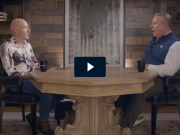It’s difficult to overstate how crushing America’s student loan debt situation is. The amount of money adults in the US owe due to educations is over $1.3 trillion and jumps up by more than $2,000 every second. The average borrower owes $28,000, though some owe much more than that. Many former students, trapped between low wages and the high cost of education, can barely afford to keep up with interest payments, let alone start paying off the principal.
Some people are put in so desperate a spot they have attempted to bail on their loans by fleeing the country and hiding out from the banks and collection agencies that will inevitably start looking for them.
It sounds slightly unbelievable, not to mention probably a bad idea from a long-term personal finance point of view, but these debt dodgers are real. I’ve met these Americans in Berlin, my adopted city. I haven’t been able to find any statistics on how many of them there are, but I’m not the only one who’s noticed the people fleeing US because of their student loans.
“It’s a phenomenon that I’m quite familiar with actually,” says student loan lawyer and author Adam S. Minsky. “In my experience, people leave because there’s a sense of hopelessness and they see greater opportunities overseas, usually through a combination of higher pay and lower living expenses. They think they’ll be better positioned to either pay their loans in real time, from abroad, or to save up and be in a better place to address the loans a couple of years from now.”
Many of the students I talked to fear the possible consequences of this strategy, but so far none of them have faced any repercussions. And according to some experts, they may never.
Joshua R. I. Cohen, who calls himself The Student Loan Lawyer, tells me that this plan could work for some people, albeit only if the debt dodgers plan to never live in the US again. Students who move to a foreign country and stop paying off their loan debt “will only feel consequences if they’re working for a US company on foreign soil,” Cohen says.
If you’re living abroad, earning a living from a foreign company, not paying US taxes, and not collecting social security, then loan companies can’t touch you, nor will the government chase you after you move abroad.
“The federal government doesn’t have really strong tools for collecting debt from people who move overseas,” says Mark Kantrowitz, another expert on student loans who serves on the board of the Journal of Student Financial Aid. “In theory, you could live the rest of your life in another country.”
Of course, if your family co-signed your loan with you and remain in America, they’ll still be on the hook. And this strategy relies on you not wanting to go home again. If these former students ever decide to come back to the US, “the debt will still be there—it never goes away,” says Cohen. “All they’re doing is putting off what could happen if they come back to the US.”
To get more insight about debt dodging, I spoke to several Americans who moved to Berlin and stopped paying their loans. All names have been changed.

Brian, 29
$40,000 in debt
I took out loans when I went to school in California. I received enough scholarship money at the time to cover half of the tuition and the loans covered the remainder. I did not have a plan for paying them off, nor did I consider how I would make it work once I graduated. I needed to go to school and it was the only solution at the time.
When I decided to move abroad, I think in the back of my head I thought that it would save me from having to pay them off. I saw the interest rise and my deferral period lapse and the anxiety just kept rising. I’m sure that Germany and America have some sort of reciprocity when it comes to this kind of stuff, just like they do with taxes, but I try not to think about it.
The loans are about to default, and I’m worried about the consequences. I’ve blocked the loan company’s emails from my inbox. I’m sure they will go after my parents soon, but that won’t do much because they don’t have any money either.
I think at this point I owe about $40,000. I really, truly, honestly don’t want to pay it back. Sure, I realize the responsibility I took on when I signed the papers and agreed to take out the loans, but I should have never had to do it in the first place. I feel some sort of civic duty not to pay them back, as if my small protest will make any kind of difference.
I think I know two friends that have completely paid off their loans and have received an awesome amount of confidence because of it. I am very proud of them, but I don’t think I’m one of those people. I would rather spend my money on things that I need like food and shelter than to give it back for a service that should have been provided for me.

Vanessa, 29
$45,000 in debt
I got my associate’s degree and then transferred to a private university in New York. They didn’t accept all of my credits, so I had to do about three years of study. I think it was $53,000 a year at the time. My mom and I applied for a loan through a private bank called Sallie Mae, among others. Every American knows that bank, the name Sallie Mae sounds so friendly; she’s just your cute aunt making soup.
Within 48 hours I had $30,000 in my bank account. It was shocking because I had never had that much money in my bank account before. I remember that after paying my student stuff it was just gone, as if I never even had it. And I didn’t live on it. I had a part-time job my entire education.
I moved to Berlin the day of my graduation. I got my loans deferred for one year and then my parents deferred it for a bit because you have a short grace period, usually six months to a year. When we tried to consolidate them we met a lot of resistance because they were from so many different banks. But I’ve never paid back the federal loans. My parents didn’t co-sign on them. The only reason that I’ve ever worried about the debt from the private lenders is because it affects my parents. I don’t give a shit about the loans in my name.
A year ago, I was working at a fancy restaurant in Berlin and made a lot of money in tips. For about ten months, I was paying some of the loans, but I don’t have that job anymore so I had to stop.
Debt collectors haven’t badgered me in Berlin. They haven’t found me in Germany. But when I go home, my phone rings non-stop. I always think it’s an old friend trying to hang out with me, but it’s really Sallie Mae. It rings like every hour.
I have this shame on the part of my parents because I really did not want this for them. When I thought about going to college, this is not what I had in mind. I really thought that they were going to be so proud of me. I was the first child in my family between my parents to graduate college. But then I realized that we weren’t thinking about the debt when we were signing up for school. And sometimes I think living in New York City and going to a private university maybe wasn’t the best idea. I could have gone somewhere else and gotten a political science or history degree and only been in $50,000 dollars worth of debt. But I’m happy that I got that education. It’s the education I wanted.
If I don’t have the money, then I don’t have the money to pay for loans. I need to eat and live and not be a slave to this debt. But I’m scared. When I look back, I wonder what I could have done differently.

Mario, 34
$160,000-plus in debt
I wasn’t even meant to go to college. It was never my intention. And then all this shit happened where I took a year off, and I realized, Fuck, I don’t think I can work overnights at a Target stocking shelves for the rest of my life. So I ended up finding this film school in California.
I couldn’t afford this private school, so I told my parents I really wanted to do this and they co-signed the loans for me. I wanna say it was like $30,000 each year. It’s a ridiculous amount of money.
I was, for sure, intending to pay the loans back. Our mentors and teachers told us that we would pay this education off for a long time, but everyone in America is doing it so it’s almost like eating breakfast. That’s how Americans are raised.
This idea that you can’t afford college so you just make loan payments when you get out of school is crazy. I started to question how could you start something when you’re starting in a hole?
Debt is not the main reason I moved to Europe. I moved for my career, but in the back of my mind it was a way to start a clean slate. At the same time, I could never really escape because my parents were co-signers. My parents own a home and were planning on leaving it to us as inheritance. They were nervous about having their house taken away from them because of me not paying student loans, and subsequently signed the house over to my sister so they wouldn’t own anything the bank could come after.
To be honest, I just don’t see myself living in America again—for reasons outside of student debt. My parents are moving back to El Salvador, where they’re from, and then I’ll have no ties to America. I don’t really like America or the direction it’s heading. For now, I don’t need to care about going back there.
I encourage whoever I can to study abroad. It’s so much cheaper. Starting your life with even $30,000 or $50,000 in the hole is not a good hole to start in.

Zoe, 31
$35,000 in debt
I got a full ride to college and I didn’t have to take out loans until the end of my freshman year. I got a D in a class and I lost half of my scholarship. So I could have had no loans. My biggest mistake in life was messing up that one year in college.
When I left, I had maybe $24,000 in loans. My intention was to get forbearance for like a year and then start paying the loans. And I knew I would be paying the loans until at least my late 30s. My brother, who is six years older than me, was still paying his loans at the time, and even my dad was paying his loans then—he got his master’s degree when we were kids.
After school, I went through my grace period and forbearance application and started paying the loans off. I was working and had a really good job. I think I was paying like $100 or $150 a month. I decided my senior year that I would move abroad after graduation. The last six months in the States I wanted to get all of my loans in order because I knew I wasn’t going to be paying them when I moved to Europe.
I got all of them up to date, and right before I left I told the loan companies I was moving and gave them an email address. Once I moved abroad, though, I just stopped paying. Once you move abroad, you just kind of turn off that whole part of your life off. They can’t touch you; you’re elusive. But they started calling my parents, my grandparents, my past employers. And I was just living my life in Europe, kind of oblivious to it.
It wasn’t until about six months ago that I started paying my loans again. I realized that I’m 30 and I just can’t dip out on my loans forever. And maybe I’ll want to move back to America at some point. I don’t want to have this burden if I do.
The past two years I’ve been banking on this rumored Obama loan forgiveness bill that still hasn’t really been passed. I guess I’ll continue at this rate until they go away? I don’t mean until I pay them off. I mean until the government’s like, “You don’t have to pay those loans anymore, you millennial! We know you’re not good for it.”
For more of Alexander’s work, visit his website.
Click here to see the full story











